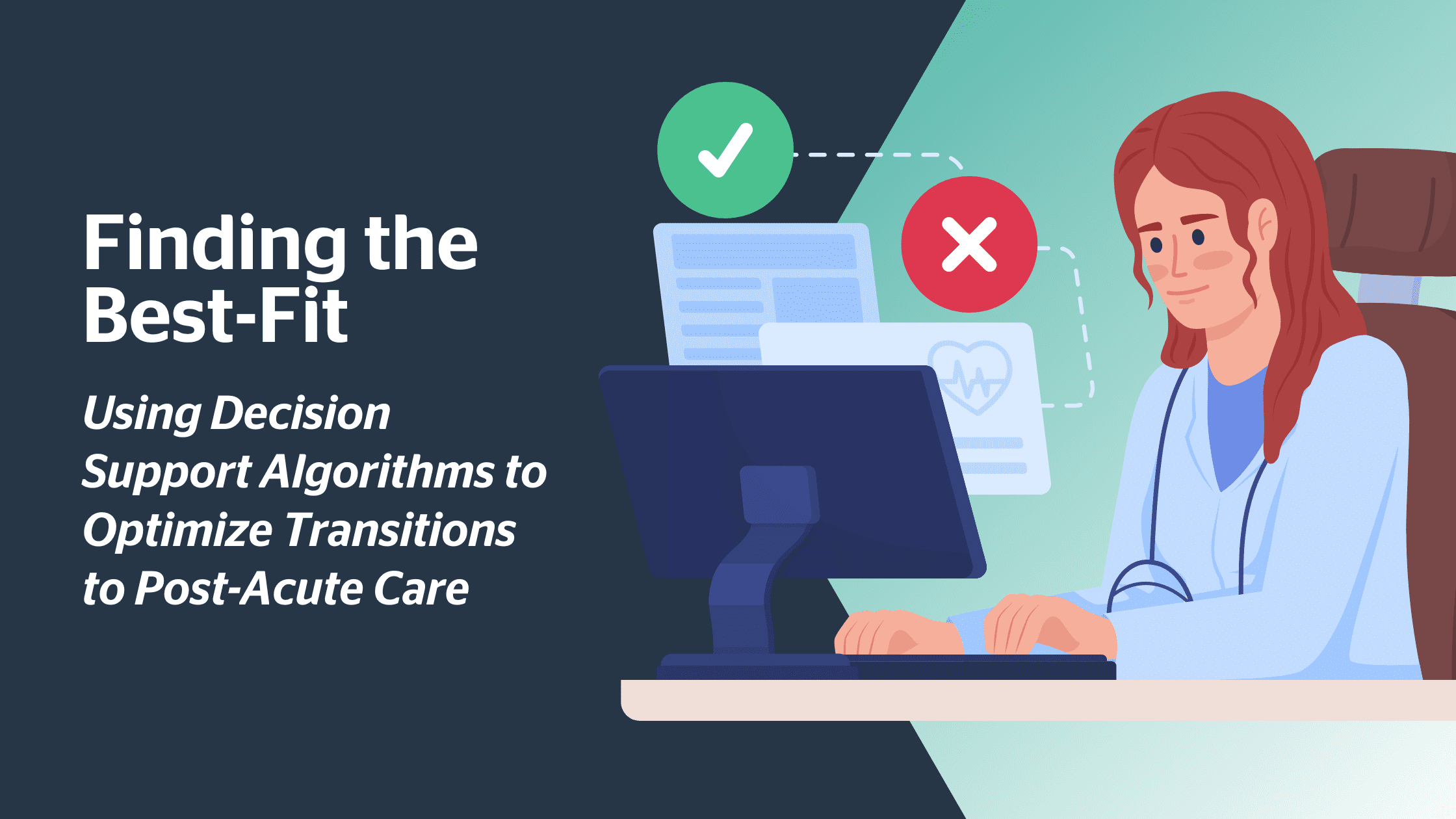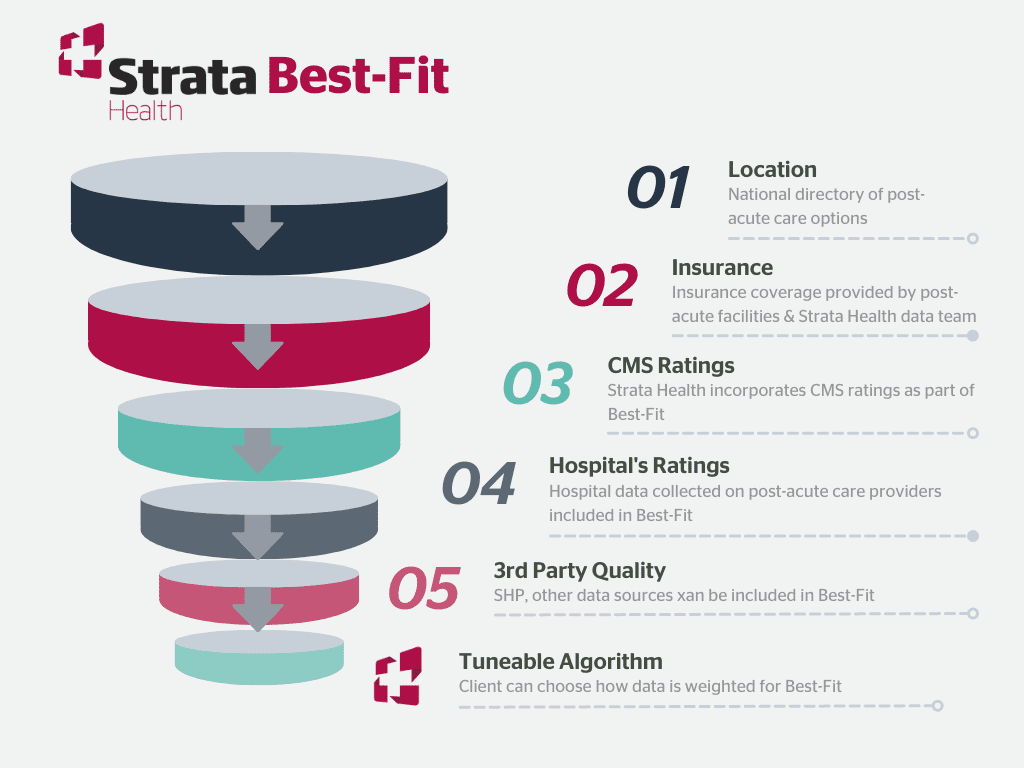
When a patient is discharged to post-acute care, you’d think they’d receive everything they need to make the most effective recovery. But, unfortunately, care transitions from hospital to post-acute care facilities can be complex and risky, particularly when dealing with older, sicker adults who are more vulnerable. Often, inappropriate referrals can result in delayed transfers or frequent transitions to and from acute and post-acute facilities, which is costly for health systems and dangerous for patients.
According to the National Library of Medicine: “One in four Medicare patients hospitalized for acute medical illness is discharged to a skilled nursing facility (SNF).” Post-acute care is positioned to be one of the most effective ways to prevent hospital readmissions. Yet, 23% of patients are readmitted to the hospital within 30 days.
Finding the best post-acute care options for your patient the first time is one of the most important aspects of delivering a safe, patient-centered transition of care. Any mistake made along the way can be detrimental. There’s no room for delays, errors, or communication breakdowns, yet these problems persist.
Without the right tools, well-intentioned case managers often lack:
- Adequate knowledge of, and access to, post-acute care facilities in the area
- Visibility into types of services provided and types of patients accepted
- Access to information that matters to patients and their families at the time of decision
- Adequate communication and information sharing between providers
- Effective documentation of patient choice to meet compliance requirements
- Streamlined, efficient workflows that reduce errors and delays
How Strata Health Can Help
As health systems continue to face staff shortages and system pressures, vendors that provide process automation and intelligent decision-making algorithms are becoming increasingly valuable. Hospitals can reduce waste, maximize human resources, and focus more on patient care by improving workflows and creating efficiencies.
Using robotic process automation (RPA), Strata Health’s transitions of care solution is powered by a Best-Fit algorithm that identifies which post-acute care facilities will best match an individual patient for optimized outcomes. The algorithm combines patient health information, needs, and preferences with any combination of factors and data sources that a hospital deems important, which often includes:
- Location of post-acute care options
- Insurance coverage
- CMS ratings
- Hospital data collected on post-acute care facilities
- Other 3rd party quality data


As a fully configurable solution, your hospital can choose precisely how you’d like the data to be weighted to produce a score or choice used to support more appropriate referral decisions. Once the match is complete, patients can browse their care options and select their preferences from a bed-side tablet, allowing case managers to initiate and document the preferences and referral from the same screen. Once a referral has been initiated, the entire transition of care process is automated. The solution also consolidates all communication and information-sharing between the hospital and post-acute care providers. No more phone tag, no more fax, and far fewer patients slipping through the cracks.
Strata Health’s automated transition of care solution offers everything you need to optimize the patient journey from hospital to post-acute care. If you’re ready to experience more efficient workflows, to make better referral decisions, faster, and to engage patients every step of the way, contact us to book a demo.